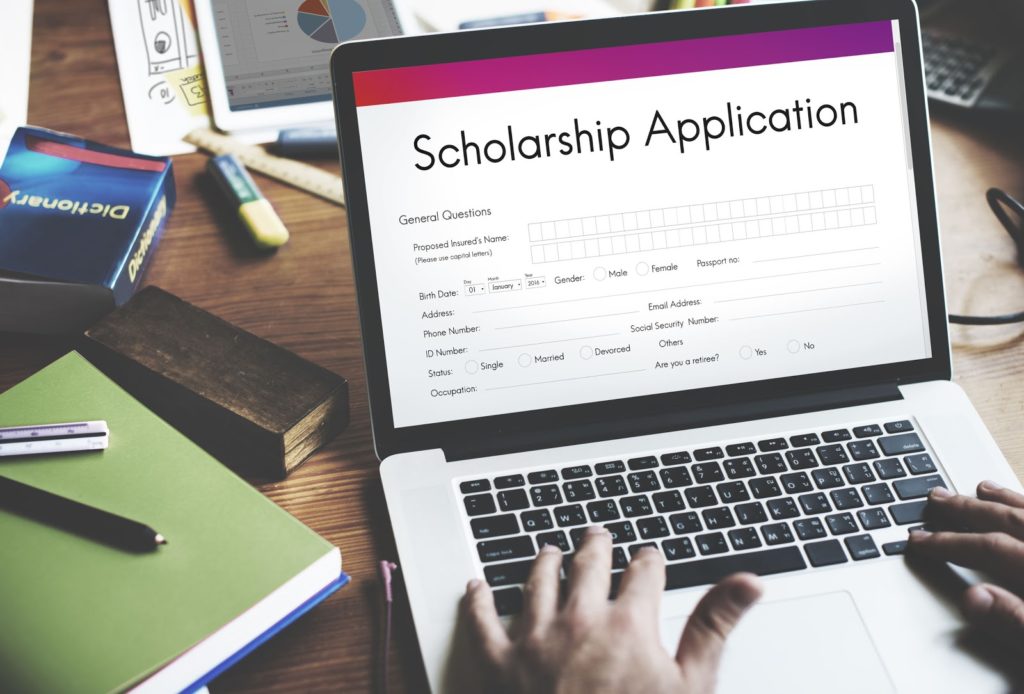
Increasing the success rate by 70%! Tips and tricks on scholarship applications
Scholarship has always been a top concern to students who are looking for further education, because it helps relieve the financial burden so that they can sail smoothly towards graduation. However, scholarship is not awarded to anyone arbitrarily without rhyme or reason. Only applicants who manage to get through the assessments and reviews, and fulfill the requirements will get the scholarship.

A grant-in-aid to a student is known as a ‘Scholarship’. Nevertheless, some organizations refer to the funding as ‘Sponsorship’. It is important to note that a ‘Sponsorship’ may be offered with the provision that recipients will have to repay part of the tuition fees if they do not secure employment after graduation. In summary, terms and conditions that come with the application of each kind of scholarship may vary. Students must read through the fine print carefully before making any application.
The biggest difference between scholarship and study loan is that scholarship does not need to be repaid while scholars might have to serve their bond with the organization for a period of time after graduation. As for study loan, it is a form of borrowing that requires borrowers to repay their education fees after they finish their studies, which is low-interest or interest-free in general.
Below are several types of scholarships categorized roughly according to the attributes of scholarship providers:
1. Government scholarships such as JPA (Jabatan Perkhidmatan Awam) Scholarship and ASEAN Scholarships of Singapore.
2. Scholarships awarded by enterprises, institutions, societies or associations, such as Sin Chew Daily Education Fund and Dong Jiao Zong Scholarship (The United Chinese School Committees’ Association of Malaysia and the United Chinese School Teachers’ Association of Malaysia Scholarship).
3. Scholarships offered by universities in the forms of full or partial tuition waiver.
4. Scholarships in the name of benefactors that are sponsored by charitable foundations whose founders are prominent philanthropists, for instance Kuok Foundation scholarships and Lee Foundation Bursary.
It is noteworthy that not every scholarship is right for you, some are only granted to science stream students, in which case art stream students can just bypass them. The most important thing is to do a thorough preparation in advance, concentrate your efforts on aiming for a certain scholarship.
Dos and Don’ts when applying for scholarships
1. Meet application deadlines
Having celebrations after receiving their SPM results are what many students will do, and there is a chance that application deadlines of scholarships are overlooked. Most of the scholarships schedule their closing date at about two weeks after the release of SPM results, which means students are only left with two weeks’ time to do their preparation.
Preparing relevant documents is not a matter of days, especially for those who want to apply for universities abroad. As such, they will need the help of their alma mater to translate the transcripts into English, which can take a lot of efforts and time. Therefore, when the results are out, priority must be given to the process of scholarship application, so that extreme joy does not beget sorrow.

2. Understand the nature and eligibility requirements of the scholarships
Every scholarship has its own eligibility requirements, for example, scholarships for underprivileged students, as the name suggests, are to provide financial aid to deprived students. So, if your father is a surgeon while your mother is a CEO, you can just skip these scholarships as no matter how hard you try, you will never be taken into consideration, not to mention being selected.

3. Getting good grades does not necessarily mean scholarship is in the bag.
Here is what a student wrote in the personal statement for scholarship application, “I deserve the scholarship because I got straight A’s in SPM.” He was not chosen in the end.
The moral of the story is, do not assume that you are the only one who deserves it or take it for granted even if you have an excellent academic performance. In this regard, being neither humble nor haughty is the right attitude. There was once a student who had been dedicated to community service work despite the fact that he was from a single-parent family, as in his view there are people who need more help than him in the society. The scholarship-givers will only reward students like him with grants.
4. Do not conceal the truth, tell it as it is
All the efforts may go down the drain if one is suspected of providing false information during the process of application or interview, despite how outstanding academic achievements he has. One must know that the interviewers have come across all kinds of people, in this case whose eyes have been trained to be discerning with penetrating insights. Therefore do not hide anything from the interviewers.
No organization will take the risk of awarding scholarships to students who face an integrity crisis, as no one can afford to put the reputation of the organization at stake. As such, credibility plays an important role in the application process. Never assume that it does not harm to tell a lie.
On the other hand, some students might find it difficult to talk about their disadvantaged backgrounds. Given that one has made up his mind to apply for scholarships, there is nothing to hide. There was once a student who only confessed after her application being rejected that she would need the scholarship as she had been in financial strain due to her parents’ divorce. By then it was far too late as the scholarship had slipped away. So it is essential to be honest and frank during the application process.
5. Avoid long-windedness and losing focus
When applying for scholarships, certificates of merit are often attached in order to get bonus marks. Nevertheless, students should know where to stop before going too far, for those certificates as petty as the ones received when participating in the school clean-up drive during Form One, or passing the Grade One Piano exam, just keep them to yourself and it’s not necessary to submit at all. Since in most cases, the scholarship committee receives a great deal of documents, and they might not have time to read all.
The applicants should keep their resumes as brief and concise as possible, so that the scholarship committee can get your points quickly and easily. Likewise, if it comes to personal statement, make sure you cut the long story short, do not show off your writing skills.
6. Do some homework prior to application
Interviewers would probably ask this question before ending the interview, ‘Do you have any questions for us?’ Avoid raising questions like, ‘When will I be informed of the application result?’ or ‘What is the amount of this scholarship?’
These are questions whose answers can be found online. Students might have exposed their weakness that they have not done their homework properly if they ask such questions. So, students are advised to think carefully in advance about what questions the interviewers would ask, as well as to whom what questions they should pose.

As the old saying goes, chance favors only the prepared mind, so students are suggested to start preparing for the scholarship application as early as Form Four. It is vital for applicants to enrich themselves before the results are released, so as to convince the scholarship committee that they are the ones worth investing in. If you do not invest in yourself for a better future, who do you think they will invest in you?
Academic performance is certainly the main requirement to win a scholarship, but when there are more and more straight A scholars while no one is smarter than anyone else, the key to success could lie with the inner qualities the applicants have. As such, the only people whom they can rely on are themselves.
